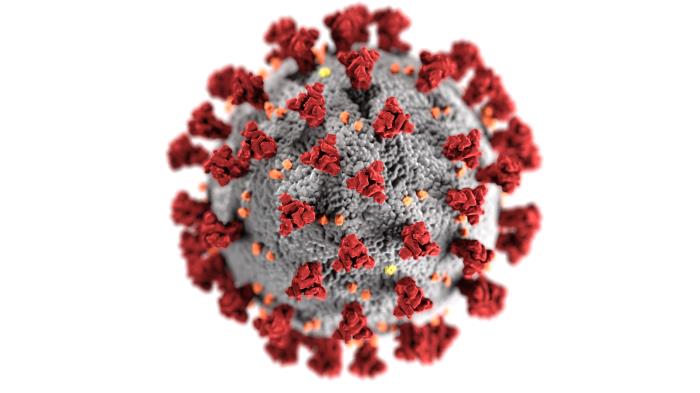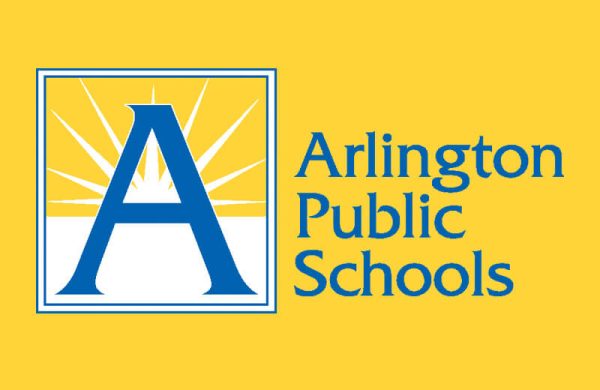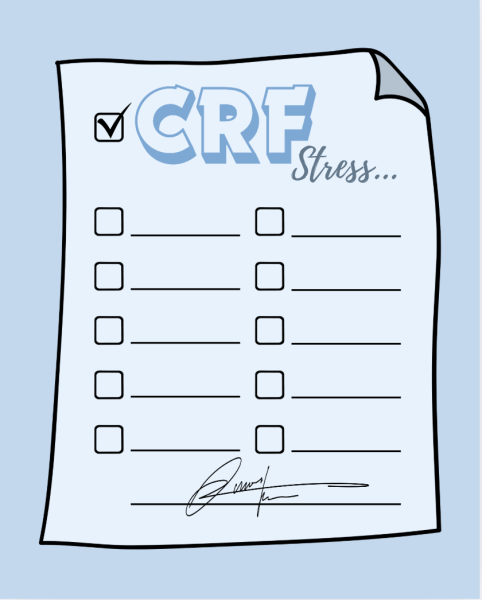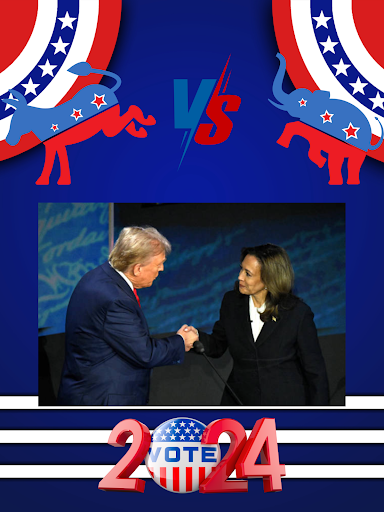Students reflect on government response to COVID-19
Over the past few months, many have become accustomed to hearing daily reports of new measures taken, or not taken, by the government in reaction to COVID-19. These reports lead to a mixture of reactions from groans, fear and even relief.
“The federal government can’t provide a one-size-fits-all plan to handle this pandemic,” Tim Sullivan, sophomore and president of the Young Republicans club at the school, said. “That’s kind of what you’re seeing when President Trump suggests reopening the whole country at the same time.”
COVID-19 had been common knowledge overseas since about January. However, the disease did not hit close to home until more recently, in March. Despite knowing about the disease since its early days in Wuhan, few steps were taken to prevent the spread in the United States until it made its arrival.
“I think that the federal government was slow to act on their response to the coronavirus,” Jillian McLeod, freshman and member of the Young Democrats club at the school, said. “As a result we’re seeing these massive epicenters where tens of thousands of people are dying and there is a large economic ripple effect.”
Since the virus’ arrival in the states, many preventative measures have been taken. There are travel bans, shelter-in-place requirements and more.
“I think the federal government’s response to the pandemic has improved,” Sullivan said. “But I’m not going to ignore the fact that if this virus was taken more seriously earlier on, we would be in a completely different situation then we are now.”
One of the largest steps taken by the federal government was a $2 trillion stimulus package known as the Coronavirus Aid, Relief, and Economic Security Act (CARES Act) passed on March 27. This act includes direct payments to individuals and families during this time. The amounts they receive depend on income levels.
“I think the stimulus deal was a good point of action,” McLeod said. “It will provide some aid to the millions of people left unemployed and financially burdened by this pandemic and hopefully help people catch their balance.”
Recently, President Donald Trump announced that he would be stopping funding for the World Health Organization (WHO).
“‘Had the WHO done its job to get medical experts into China to objectively assess the situation on the ground and to call out China’s lack of transparency, the outbreak could have been contained at its source with very little death,’” President Trump said according to CNN.
This decision has been met with some anger, as it has since come out that Trump was in contact with the WHO during this time, according to the Washington Post. Even before this, many people argue that the WHO has been very helpful during this difficult time.
“The fact that Trump cut spending to the World Health Organization shows how little care he has for the wellbeing of people on this planet,” McLeod said. “It’s just another one of his actions that reveals him as impulsive, attention-seeking, and ill-advised. He thinks he’s doing everyone a favor by cutting funding to this organization, but when the U.S. is the largest contributing country and we cut that funding, everyone in the world is affected. The lack of capital resources sent to the WHO will mean that they won’t be able to do their job to the fullest capacity, and as a result millions will suffer and we won’t be prepared for future pandemics.”
Others argue that the decision to cut funding from the United States will not hurt the WHO much anyway due to the many contributing countries.
“On the surface, [cutting funding for the WHO] doesn’t look like such a good idea,” Sullivan said. “It’s probably not that great of a decision, but the WHO is not going to run low on money. The recent cuts in U.S. funds to the WHO, while maybe not the best idea, is really not that big of a deal as the WHO still receives billions of dollars in funding overall.”
Also tackling COVID-19 are state governors, including Virginia Governor Ralph Northam.
“Most states have handled this outbreak very well,” Sullivan said. “There are a few rural states that have been slower to enact certain social distancing measures, but as a whole we’re seeing governors on both sides of the aisle handle the spread of COVID-19 very admirably.”
As Virginians have become well aware, Governor Northam has made the decision to close Virginia schools for the remainder of the school year and enacted a stay-at-home order until June 10.
“I agree with Governor Northam’s decision to close schools for the rest of the school year,” McLeod said. “I agree because in order to totally eradicate this virus we need drastic measures. I get nervous when I see headlines about opening up the country, because we’ll almost certainly see the number of cases go back up when that happens. I am happy that Northam made this decision because Virginia’s school systems will be doing their part.”
The stay-at-home order will similarly allow Virginians to practice social distancing as much as possible. While many find this hard to hear, there seems to be an overall agreement that this is what needs to happen.
“I initially was shocked and quite angry at Governor Northam’s decision to issue a stay-at-home order until June 10, which to this day still seems like a lifetime away,” Sullivan said. “The notion that life was being put on hold was very difficult to hear, and I was heartbroken at the fact I really couldn’t go anywhere, do anything, or see anybody for multiple months. However, I still ultimately recognized that these measures being taken, while upsetting, were being taken for good reason. I know this stay-at-home order has to happen to induce as much social distancing as possible, so we can eventually return to some sense of normalcy quicker and, most importantly, safer.”
It is agreed by many that the measures being taken are very important.
“We are living through unprecedented times, and unprecedented times call for unprecedented measures,” McLeod said. “I hope people realize that by not abiding by these stay at home orders, they may be sacrificing a life or someone’s health.”













